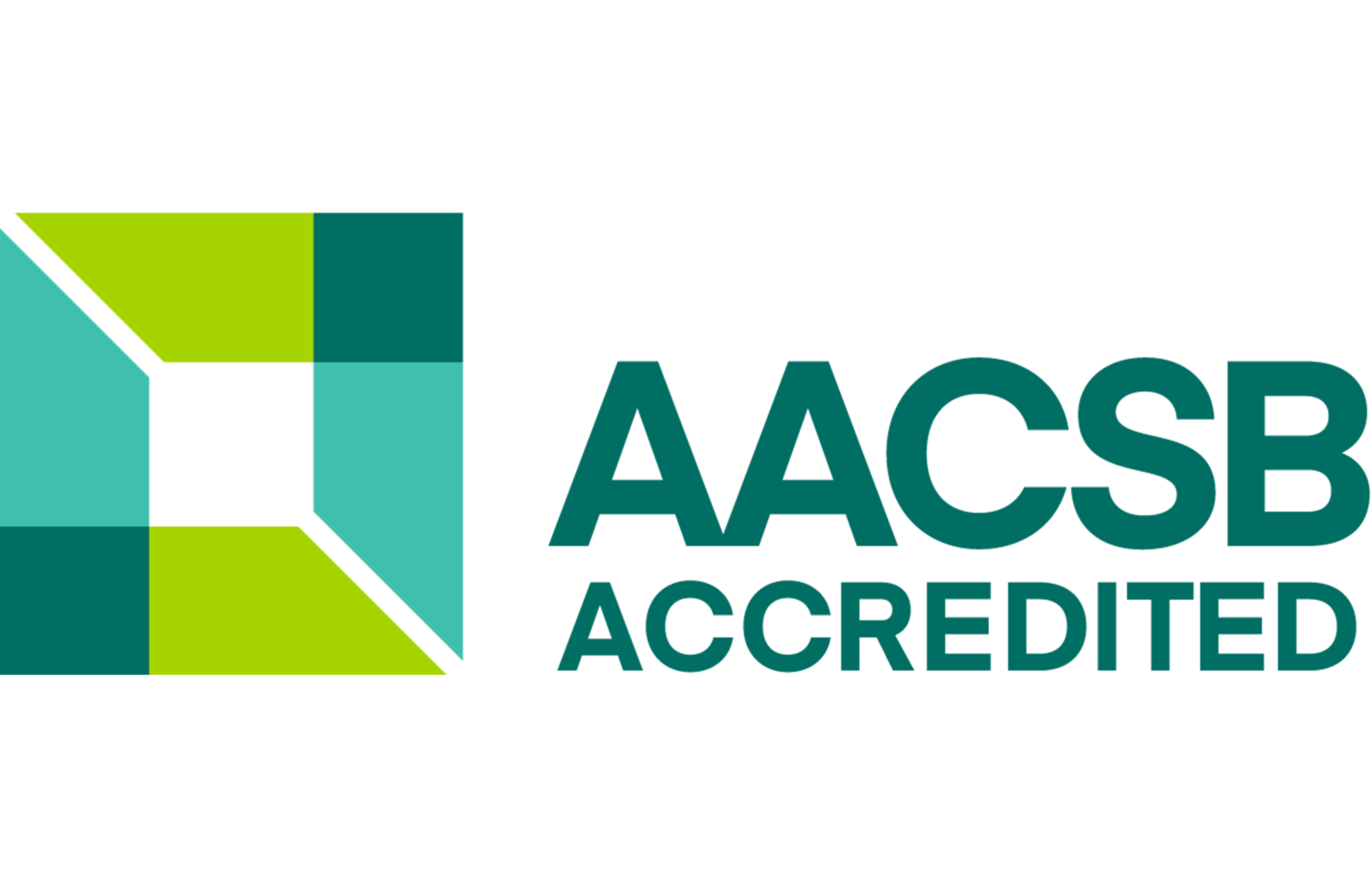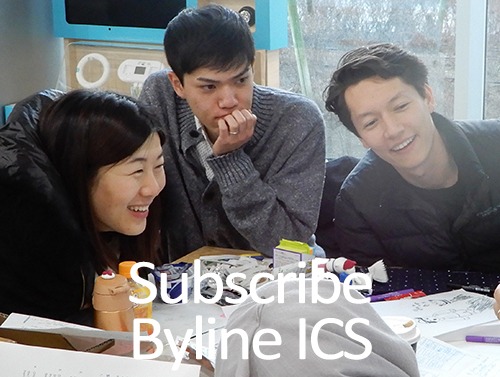Aly Valdemoro, an ICS alumna from the MBA Class of 2022, shares her insights and experience about the course Doing Business in Asia (DBiA) 2023 for her kouhais (juniors). She was a recipient of the Young Leaders' Program.

When I first got my admission letter for MEXT's Young Leaders' Program scholarship, I knew I was in for an unforgettable year of study at Hitotsubashi ICS Tokyo, Japan. Little did I know that I would be able to experience far more than I had expected.
The Doing Business in Asia course or DBiA is the final (elective) course offered by ICS before the end of the academic year. It was designed to help the students learn more about the similarities and contrasts of doing business between the three East Asian nations (Japan, China, & South Korea). The course was created through a collaboration between three universities from these nations, namely Hitotsubashi University ICS (ICS), Peking University (PKU), and Seoul National University (SNU) also known as the BeST alliance.
Tokyo Module (July 31 - August 3, 2023)
DBiA kickstarted with the Tokyo module on July 31st with a half-day class lecture on Omotenashi, Japanese hospitality, delivered by Prof. Satoko Suzuki and Dean Emi Osono. Afterward, we were able to experience omotenashi firsthand by experiencing Awa Odori inside the Kabukicho Tower. We all danced and sang along with them in the tone "Yatossa!" "Yatto Yatto!". We then stayed the night at the Hotel Groove, one of the newest hotels in Kabukicho, where they showcased sustainability initiatives such as the Green Coin Program, which aims to reduce the number of amenities used daily without compromising the world-class services of the hotel. Their foldable paper razor was very innovative! All of this while enjoying a great view of Tokyo.

On the next day, we visited the Shibuya Hikarie and Shibuya Sky where we had discussions with executives of Tokyu Land Corporation with regards to the current and future development of the area. It is interesting to note how they integrated the TOD (Transit Oriented Development) strategy to connect their projects and make their real estate developments easily accessible to the public through their privately owned railway system.
It was such a full day but it did not end there. Another interesting place we went to is the Kudan House - a well-preserved Spanish-style villa that is currently being used to house exclusive events for its members. There, we talked with the founder about how luxury has evolved.
 Participants at Shibuya Scramble building
Participants at Shibuya Scramble building
On the third day of the Tokyo module, we went to several redevelopment projects and co-working spaces in Yurakucho and Otsuka in partnership with Toho-Leo, all of which aim to make the Yurakucho area more appealing to tourists and businesses alike. The last day was scheduled for the group presentation of learnings during the module as well as potential business opportunities that could provide new value to the mature Japanese real estate market.
✎Senpai’s tip: Prepare the slides for the presentation ahead of time, divide the tasks, and provide online access so that everyone can readily contribute throughout the module. Students from other universities may not have Google accounts, therefore we might need to assist them in submitting their contributions. Alternatively, you may use Microsoft Outlook, Onedrive and Sharepoint instead.
Beijing Module (August 4 - 8, 2023)
We had to leave right after the group presentation to catch our flight to Beijing. We traveled together, and our Chinese classmates kindly assisted us in navigating the Beijing airport and purchasing SIM cards. The campus of Peking University is quite large but well-secured.
We were warmly welcomed when we arrived in PKU on our first day of the Beijing module. Prof. Rui Wang gave a class lecture on digital marketing in China. This session provided us with an overview of the Chinese market and how digital marketing has significantly changed it. During lunch, our Chinese colleague toured us around their beautiful campus.
The next day, we attended a half-day class by Prof. Hui Wang we learned about China's demographic policies and economic theories which allowed the country to achieve sustainable economic growth. We then went to the Summer Palace for a cultural experience. The place was crowded because it was summer vacation, but we were still able to enjoy its beauty. A tour guide was with us to tell us about the history of the place.

Following the cultural experience, our colleagues volunteered to show us around a shopping street consisting of tourist stores, street foods, and restaurants. We were able to try a variety of delectable Chinese dishes!

The third day was spent visiting the Great Wall of China. We were all quite enthusiastic because it was almost everyone's first time going there. We went in groups and explored various routes of the Great Wall. We had free time afterwards, but because we were already in Beijing, we wanted to tour the city instead of staying in the hotel. Some of us were fortunate to get a ticket to the Forbidden City (prior reservation through email is required), so we proceeded there immediately following the Great Wall.
Before the third day was done, our Chinese classmates prepared another dinner at a fancy Chinese restaurant where we were able to try another set of excellent Chinese cuisine.

The last two days of the Beijing module included company visits to PopMart – a toy company known for pioneering designer toys and 'blind boxes' around the world, and Microsoft China HQ, where Microsoft’s latest and upcoming new developments such as AI real-time translation and minutes writing assistant, Microsoft glasses, aviation simulations, and the future of retail shopping were showcased. We also had our last classroom lesson about the complex networks and management of dynamic environment in businesses and organizations. It was an interesting lecture as it taught us the complex relationships between organizational structures and strategies to enhance its productivity. We also conducted an exercise in which Prof. Zhang demonstrated the significance of locating an organization's core point to the success of an organization.
✎Senpai’s tip: Before traveling to China, purchase a sim card with internet and a VPN in Japan. It is more expensive to purchase at the airport, and it will not have access to Google accounts, Line, Instagram, and so on. Additionally, download Alipay or WeChat and link your credit card. This gives you payment options, so you won't need to bring much cash. In China, most payments are made digitally, and you may use your Alipay or WeChat account everywhere.
Seoul Module (August 9 - 12, 2023)
Seoul is DBiA's final stop. We learned a lot in the two prior modules in Tokyo and Beijing before arriving at our final stop. In terms of adapting, navigating the area, and visiting various tourist attractions, we were able to easily transition into this new environment. We were now also more familiar with our PKU and SNU colleagues as we had already spent over a week together.
The Seoul module combines classroom lectures, corporate visits, cultural experiences, and group presentations from the previous two modules. Prof. Woojin Kim gave us an overview of the Korean business structure and described how it differs from the rest of the world on our first day. We then proceeded to make Gangjeong – a traditional Korean snack. After the cultural experience, our Korean classmates took us to the Gyeongbokgung Palace and introduced us to an authentic samgyeopsal restaurant.

Prof. Dae Ryun Chang, professor/filmmaker, delivered our second lecture in Seoul. Personally, I found his lecture the most interesting. He showed us Korea through the lens of a film. He was effectively able to make us understand the cases and articles by making us watch it instead of reading it. His films are also rich in symbolism, leading us to question the underlying meaning of every conversation, action, and even the characters' clothes. Later that day, we visited Amore Pacific, a beauty and cosmetics corporation known for brands such as Sulwhasoo, Laneige, and Etude House, to gain insights into the Korean beauty industry.

The third day of the Seoul module started with a class lecture from Prof. Jaeyong Song on "The Samsung Way". In this lesson, he discussed how Samsung became a world-class organization, as well as how they devised Samsung's unique strategy of "internal co-opetition" - a combination of collaboration and competition - to ensure its competitiveness.
Because there was a storm in Seoul during our visit, our Han River boat cultural excursion had to be canceled. It was, however, replaced by a tour of Korea's tallest building, the Lottle World Tower. The Seoul Sky observation deck has a panoramic and stunning view of Seoul. It also provided information on Seoul’s transformation from its historical appearance to its current state.

On the final day in Seoul and the last day of DBiA, each group presented their business concepts modeled after existing businesses from their respective countries that could be introduced to South Korea. Our DBiA certificates were also distributed immediately after.
✎Senpai’s tip: WiFi is available practically everywhere in Seoul. You can almost get by without purchasing a SIM card. As this is the final module, be sure to connect with everyone before you go.
Overall, you can expect to learn a lot from Doing Business in Asia (DBiA) course. This is a great course packed with diverse range of experiences. During our two-week trip, we had the opportunity to gain knowledge and insights from professors and company executives, which we can use in our future endeavors. Additionally, we were able to meet and network with our peers from PKU and SNU, allowing us to personally experience their cultures and create international connections. This is an experience I will never forget, and I am grateful for the opportunity to participate in such a remarkable learning experience.
Follow Hitotsubashi ICS on Instagram for more photos from our adventures in Tokyo, Beijing, and Seoul. We shared our everyday DBiA experience in its Highlights section.
Aly Valdemoro
Class of 2022
.jpeg?width=222&height=222&name=Aly%20Valdemoro%20(LinkedIn).jpeg)
|
Aly Valdemoro Originating from the beautiful Philippines, Aly completed her undergraduate studies with a major in business administration, focusing on finance and treasury management. This academic background paved the way for her to embark on a fulfilling career at the Development Bank of the Philippines (DBP), a state-owned financial institution that supports infrastructure development, responsible entrepreneurship, efficient social services, and environmental protection. Aly's exceptional abilities were recognized through her selection as a recipient of the prestigious MEXT's Young Leaders' Program scholarship. Presently, she holds the position of Account Officer at DBP's Development Lending Sector, utilizing her expertise and knowledge gained from her graduation from Hitotsubashi ICS in August 2023 to make a positive impact on the society. |







.jpeg)


